- Home
- Iris Murdoch
The Book and the Brotherhood Page 11
The Book and the Brotherhood Read online
Page 11
Their house in London, then in Putney, was let, so Duncan stayed at a hotel. He sent a note to Jean simply giving the address of his club. He was busy with his physical condition, attending University College Hospital for head tests. He tried not to think about Jean’s reply. An irritating evasive one arrived saying, ‘Why have you run away?’ A little later, after his second eye operation, she sent another note saying that she was living with Crimond. This news was confirmed by a letter from Dominic Moranty which said it was ‘all over Dublin’. Moranty expressed a sympathy which Duncan could have done without, and indignation that ‘everyone’ was blaming Duncan for having brought it about by his insane jealousy. Duncan was not surprised that gossip sided with the lovers; and was relieved that Moranty’s tactless missive omitted the point which would surely have been of the greatest interest if known. A little after this Duncan sent his official letter of resignation to the Foreign Office. He wrote telling Jean that he had resigned and was staying in London. He added, without complaints or endearments, ‘I suggest you return to me.’ After a little while Jean wrote that she was sorry he had resigned, that she was staying in Dublin, and would follow his instructions about the flat, the car and ‘the property’ (she did not say ‘the tower’). A PS said, I am very sorry. Duncan asked his solicitor to acknowledge the letter.
As Duncan saw it later, he was enabled to go coldly on with this hideous business because he had another engrossing mortal anxiety, another job to do, ‘going to work’ at Moorfields. He wondered, later, if he should have screamed, accused and begged, at any rate by letter; he could not, in his present state, have presented himself in person. Later he bitterly regretted not having tried, somehow, intelligently, passionately, to get his wife back. Vindictive hatred of Crimond, Crimond whom he regarded practically as a murderer, had made him icy cold to Jean. Had he been able to think simply, whole-heartedly, about her he could have written tear-stained pages. As it was, in his imagination and in his dreams, Crimond stood between them, as thin as a lance, as tall as a kouros, pale and glimmering. Meanwhile however his ‘work’ had been going unexpectedly well, all was by no means lost. His right eye gradually regained normal vision, and his left eye, though oddly ‘stained’, regained enough sight to help its colleague. He had worn glasses before, and now with perceptibly thicker lenses was able to envisage, and then attain, a return to an ordinary life of walking and reading. The situation was even likely to improve further, and he might expect to be able to drive a car again. ‘You don’t just see with your eyes, you see with your brain,’ his cheerful doctor told him, ‘and it’s amazing what ingenious adjustments it can make!’ The same doctor assured him that his ‘funny eye’, certainly noticeable, looked ‘fascinating’, even ‘positively attractive’.
During this ordeal Duncan had become mortally tired. He had enacted being blind, experienced being unable to read. He had felt the cold shadow of death, being determined if he did not regain the power to read, to kill himself. Now as he gradually recovered from one horror he was seized by the other. His spirit regained, with its strength, its capacity for a different suffering. He re-enacted again and again his walk to the tower, the bedroom scene, Crimond with his shirt, Jean looking over her shoulder, the blow, the fall. He dreamt about Crimond. He did not dream about Jean, except perhaps as a black muddy lump or black ball which figured in many dreams. Day and night he desired her, longed for her presence, fancied her return, reconciliation, happiness. Remorse tormented him and he imagined innumerable ways in which it all need not have happened. He ought to have spoken frankly to Jean instead of spying on her, he ought to have admonished her and warned her, he ought to have protected and looked after his wife instead of becoming her enemy. He ought not to have resigned his job, he ought to have stayed in Dublin and faced it all out there, eyes and all. She had accused him of running away. He had shirked an ordeal which might have won her sympathy, he had too hastily embraced defeat instead of standing out for victory. Now it was too late – or was it? He was paralysed by hatred of Crimond – or was it fear?
Duncan had taken care not to announce his return to any of his friends. At that time Gerard, Jenkin and Rose were all in London, Gerard in the Civil Service, Jenkin teaching in a polytechnic, Rose working for a magazine. The news of course got round quickly enough that Duncan had resigned from the service, then that his marriage was in trouble, then that the third party was David Crimond. Gerard, the first to hear from a friend in the Foreign Office, rang up Jenkin, then Rose, neither of whom knew anything. Rose said she had thought it odd that she had not had a reply to a letter she had written to Jean, for they kept up a frequent correspondence. Gerard, who kept up more intermittent communication with Duncan, also now noted that he had not heard. Jenkin hardly ever wrote to anyone. Gerard took it on himself to check the now more numerous sources of information and concluded that what was rumoured was true. It was obviously not a situation for telephone calls. They were in any case not used to chatting by telephone. Gerard said they must do something, make some gesture. After writing it out carefully in several different drafts he despatched an immensely tactful letter to Duncan in Dublin where he thought (not having imagined so prompt a departure) that his friend still was. Rose wrote a letter, also tactful, but very brief and quite unlike Gerard’s to Jean. Both letters ‘said nothing’, only indicated they had heard something and were feeling upset and sympathetic. Jenkin sent a postcard to Duncan saying: Be well. Love, Jenkin. He chose the card with care (it was a peaceful landscape by Samuel Palmer) and enclosed it in an envelope. These missives in due course found their way back to Duncan’s London club where he regularly picked up mail, wondering when he would hear again from Jean. Rose, Gerard and Jenkin were meanwhile constantly in touch, and met to discuss the situation at Gerard’s house in Notting Hill. (By this period, Robin Top-glass was married and gone to Canada.) They were unanimous in being inclined to blame Crimond. They then started to compare notes about him, repeating that they must not be influenced by their distaste for his politics. They concluded that his extremist militant socialism must show something about his personality, that he was a ‘fey’, unpredictable person. They agreed that though they had liked and esteemed him at Oxford, they had never really got to know him. They were genuinely worried about Jean and Duncan, but speculation was inevitably interesting. These conversations (during which they constantly said, ‘Of course we don’t know the facts!’) were inconclusive, but from them dated Rose’s positive dislike of Crimond which became important later on. Meanwhile no one seemed to know where Duncan was.
Later, after the welcome verdict from Moorfields, when Duncan, who had heard nothing more from Jean and had not written to her either, was more positively attempting to put his life in order, he found himself bitterly regretting that he was now left without a job. At this point, not because of this regret but because he felt that the time had come, he at last wrote a note to Gerard, simply giving his address and asking him round for a drink. By now Duncan had given up hotels and had rented a small flat in Chelsea where he had been leading a crazy solitary incognito existence. What passed at this meeting was never later on divulged by either of them. In a way, little passed, but the meeting itself was momentous. Duncan gave Gerard a brief general account of what had happened, omitting the drama at the tower. According to this account, Duncan, having gradually realised that Jean was in love with Crimond and that they were probably lovers, had come into possession of evidence (he did not say what evidence and Gerard did not ask) that they actually were lovers, and had soon after been told by Jean that she proposed to leave him. Since then, apart from a letter confirming that she was living with Crimond and had no intention of coming back, he had heard nothing. Gerard naturally wanted to know a good deal more, but naturally did not press for it. The occasion was also important for Duncan because he was able to ‘try out’ his damaged eye upon an important witness. In fact Gerard failed to notice the odd eye, and had to have his attention drawn to it by Duncan’s reference t
o ‘some eye trouble’. They got a bit drunk together and remembered, though they did not mention, the time when they had been lovers after Sinclair died. Gerard, without audibly bemoaning Duncan’s hasty resignation, which he could not see to be necessary, raised the question of a job. Teaching? No. Politics? Certainly not. Why not the Home Civil Service? Duncan, after indicating that he was ‘done for’, ‘fit for the dole queue’ and so on, agreed that this was not a bad idea, transfers from the diplomatic field to Whitehall did occur, and although he had so abruptly ‘cut the painter’ a sympathetic view might be taken. A short time after this he entered the Civil Service, not in the department which he would have chosen, but in a quite sufficiently promising and interesting post.
The fight in the tower had taken place in June. After Duncan had acquired his new job he had sent a letter to Jean saying that he loved her and hoped she would return. This was in August. He received no answer. He was still getting occasional letters from Dominic Moranty confirming that Jean and Crimond were together and becoming accepted as an established couple. Duncan now had even more time and energy to be miserable. He was still attending the eye hospital but the original terrible fears for his eyesight were over, and he had also stopped imagining that he was ‘done for’. He had dissuaded Rose and Gerard from, admittedly vague, plans for ‘doing something about it’ (going to Dublin, remonstrating with Jean, denouncing Crimond and so on). He settled down to despair. For the time, friends and acquaintances thronged round him, a deceived and abandoned man is always popular, satisfying to contemplate. He was grateful to Gerard and Rose and Jenkin, who genuinely cared. But he wanted, so much more than the diversions which they invented for him, to sit alone with his own misery, his grief, his loss, even his jealousy, his obsessional images of Crimond, his remorse and regret, his sick yearning for his dear wife. He wanted to make terms with his unhappiness, to go over and over the terrible past, running through every ‘if only…’, until he had exhausted all these things and been exhausted by them.
Then suddenly, in November, Jean came back. It was a cold evening, a little snow was falling. Duncan was sitting as usual, with a whisky bottle and book, beside the gas fire in his little flat. The bell rang. It was late, he did not expect visitors. He went down some stairs, turned on a light, opened the front door. It was Jean. Duncan turned at once and began to go back up the stairs to the open door of his flat. He could still remember, later, the feeling of the banisters as he hauled himself up. He had put on weight, he was tired, he was a little drunk. He heard the front door close and Jean’s steps behind him. She followed him into the flat and into the sitting room closing the doors. She was wearing a black raincoat and dark green mackintosh hat, both lightly spotted with snow. She took off the hat, looked at it, brushed off the snowflakes and dropped it. Then she let the coat slide off backwards onto the floor. She uttered a little whimpering sigh, looked quickly at Duncan, then turned her head sideways and plucked at the neck of her dress. Duncan, who had retreated to the fireside, stood with his hands in his pockets gazing at her with a calm faintly inquisitive look which did not at all express his feelings. He had felt of course, as soon as he saw her, certain that she was really and truly coming back to him. This was no conference under a flag of truce, it was surrender. A golden light shone before his eyes and an explosive dilation of his heart stretched his breast to bursting. He was ready to cry with tenderness, to faint with joy; but what steadied him and dictated the charade, upon which he later looked back with satisfaction, was a sense of triumph. It was a delectable and well-earned reward. He felt too a release of anger as if now he could shake her, beat her. Just for these sustained seconds she was at his mercy. This was the unworthy thought which made him able to seem so calm and unmoved. Jean too, before his eyes, went through some steadying hardening transition. Perhaps she had hoped for an instant welcome and to allow her tears to flow. There had been some beseeching in her first glance. Now she frowned, smoothed down her hair, turned to him again and said, ‘I expect you want me to make a statement.’
Duncan said nothing.
‘Well, briefly, I’ve left Crimond, that’s over, and I’d like to come back to you, if you’d like that. If not I’ll go away, now, and we can arrange a divorce or anything that suits you.’
Jean’s face was still red from the cold and the sudden warmth of the room, and her chin was wet where the snow-flakes had got at it under her hat. She looked down at her raincoat on the floor, and evidently realising that it had been a mistake to take it off since she might be leaving directly, picked it up and began putting it on again.
Duncan had by now controlled himself for so long that he found it positively awkward to set about expressing his feelings, and felt silenced by realising that he had a choice of words. Then, watching her, he said spontaneously, ‘What are you doing with that coat? Put it down.’
Jean dropped the coat and Duncan stepped forward and took her in his arms.
Thus ended the first episode of Jean and Crimond and thus began the renewed marital happiness of Jean and Duncan which lasted over many years until the occasion of the summer dance which has been described.
The problem about the book was really a quite separate matter which can be more briefly explained. It was separate, and yet it somehow increasingly wove itself into the fates of the friends, in and out as the years went by, and became, at least emotionally, connected with Crimond’s behaviour to Jean and Duncan. It all started long ago, when Sinclair was alive, and it was, as they all later recognised, deeply affected by, as it were, Sinclair’s hand protectively outstretched above the contentious volume.
When they were all still young, in their twenties, when Gerard and Sinclair were living together and founding and editing their short-lived left-wing magazine, they saw a good deal of Crimond. Crimond, not at that time well known, was splashing about in politics and had just been expelled from the Communist Party for left-wing deviation. He was living in Bermondsey in what he called ‘a rooming house’ and being conspicuously penniless and crammed with revolutionary virtues. They were all to varying degrees left-wing. Robin was, though not for long, also in the Communist Party, Sinclair declared himself a Trotskyist, Duncan and Jenkin were radical Labour supporters, Gerard was what Sinclair described as a ‘William Morris Merry England Socialist’. Rose (then a pacifist), and Jean, had just left the university. Long exciting sometimes acrimonious political arguments went on at Crimond’s place or at Gerard and Sinclair’s flat, or at ‘reading parties’ at the Curtland parents’ house in the country. Sinclair was very fond of Crimond, though not in any degree or way which could cause Gerard any jealousy. They were all free and generous and unjealous in their affections, in the style approved of by Levquist, and they noticed this too and felt pleased with themselves. They were all fond of Crimond, though he was even then the person least closely involved in the group. They also, and this was important, admired and respected him because he was more politically active, more dedicated, and more ascetic than they were. He was also more politically educated, and apt to assemble his ideas into theories. (He had been a very able philosophy student.) He began to write the pamphlets for which he was later renowned. He lived very frugally upon occasional journalism and savings made from his student grant at Oxford, he had not, and did not seek, a job. He travelled little except for regular visits to Dumfries to see his father. He was known to be good at ‘living on nothing’, he did not drink, and had worn the same clothes ever since his friends could remember. He liked living with very poor people.
About this time, during the exciting political arguments, Crimond spoke of a long quasi-philosophical book which he intended to write, and whose agenda he sometimes, at their insistence, enlarged upon to Gerard and the company. By now Crimond’s savings were beginning to run out and (as he told Gerard when closely questioned) he was proposing to take a part-time job; any job, he said, so long as it was unskilled. Clearly it was no good trying to persuade Crimond to ‘join the establishment’ by becomin
g an academic or an administrator. Gerard had a poorly paid job with the Fabian Society, but Rose and Sinclair had ‘money of their own’, and Jean, whose father was a banker, was rich. Crimond’s situation was discussed, and it was deemed a pity that he should have to spend time on other work when he ought to be thinking and writing. ‘He ought to write that book!’ Sinclair said, and added only half in jest, ‘I feel it is the book which the age requires!’ It was also Sinclair who suggested that they should all join together and contribute on a regular basis to enable Crimond to devote himself to full-time intellectual work. ‘After all,’ said Sinclair, ‘writers have often been supported by their friends, what about Rilke living in those castles, and the Musilgesellschaft which supported Musil?’ It seemed probable that some such project was then actually communicated to Crimond and contemptuously rejected, at any rate nothing happened. The idea persisted however of what Sinclair referred to as the Crimondgesellschaft, later known among them simply as the Gesellschaft.

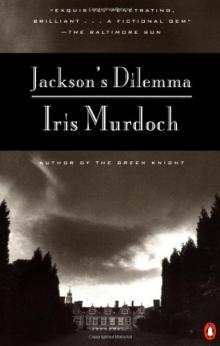 Jackson's Dilemma
Jackson's Dilemma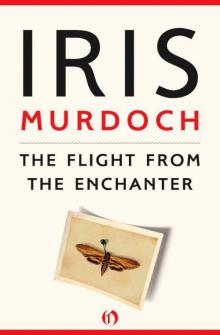 The Flight From the Enchanter
The Flight From the Enchanter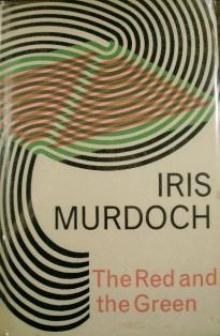 The Red and the Green (Vintage Classics)
The Red and the Green (Vintage Classics)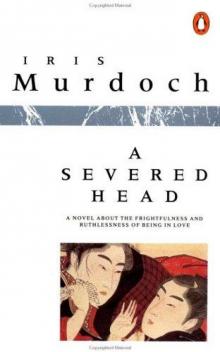 A Severed Head
A Severed Head The Black Prince
The Black Prince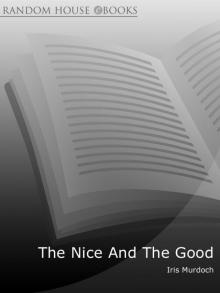 The Nice and the Good
The Nice and the Good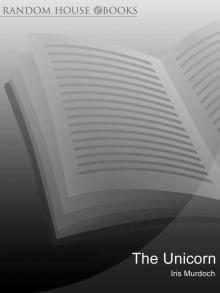 The Unicorn
The Unicorn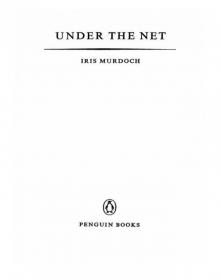 Under the Net
Under the Net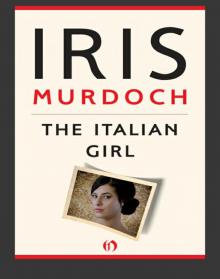 The Italian Girl
The Italian Girl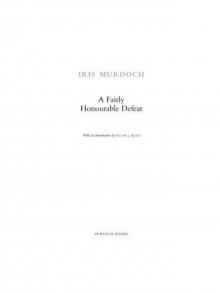 A Fairly Honourable Defeat
A Fairly Honourable Defeat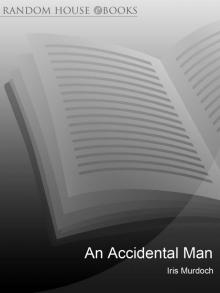 An Accidental Man
An Accidental Man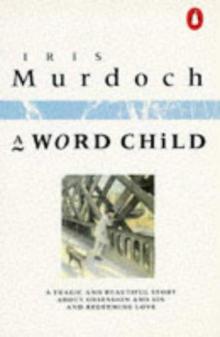 A Word Child
A Word Child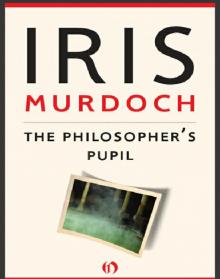 The Philosopher's Pupil
The Philosopher's Pupil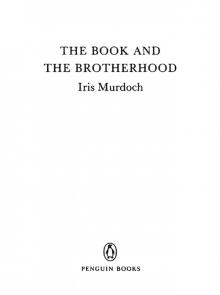 The Book and the Brotherhood
The Book and the Brotherhood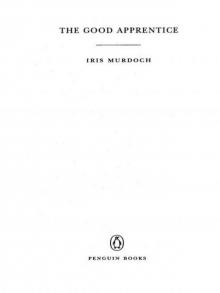 The Good Apprentice
The Good Apprentice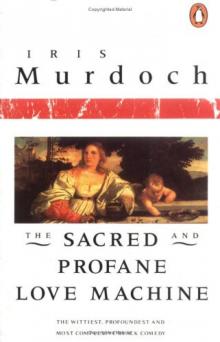 The Sacred and Profane Love Machine
The Sacred and Profane Love Machine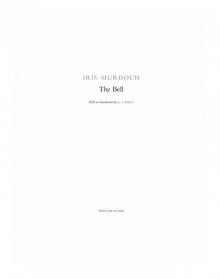 The Bell
The Bell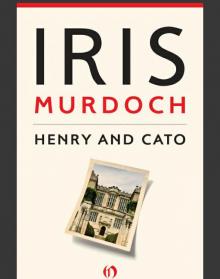 Henry and Cato
Henry and Cato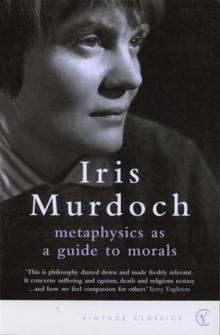 Metaphysics as a Guide to Morals
Metaphysics as a Guide to Morals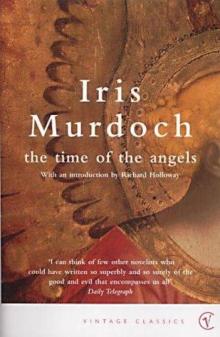 The Time of the Angels
The Time of the Angels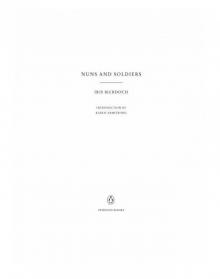 Nuns and Soldiers
Nuns and Soldiers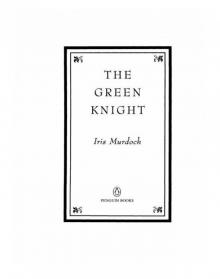 The Green Knight
The Green Knight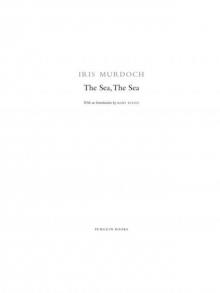 The Sea, the Sea
The Sea, the Sea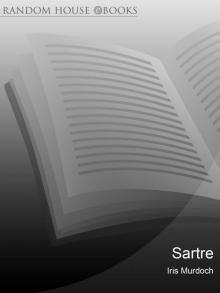 Sartre: Romantic Rationalist
Sartre: Romantic Rationalist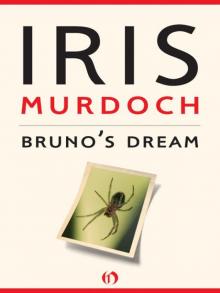 Bruno's Dream
Bruno's Dream An Unofficial rose
An Unofficial rose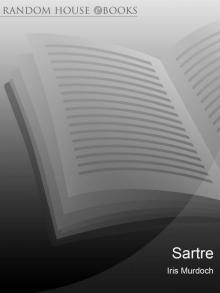 Sartre
Sartre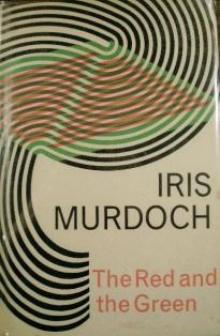 The Red and The Green
The Red and The Green